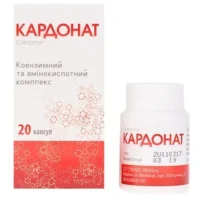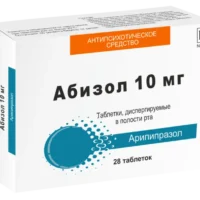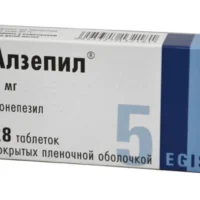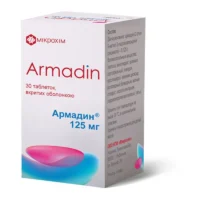Description
Mirapex PD Tablets with Prolonged Release 0.375 mg. №30
Ingredients
- Each tablet contains 0.375 mg of pramipexole dihydrochloride monohydrate as the active ingredient.
Dosage
- The recommended dosage is determined by a healthcare professional based on individual needs.
- It is typically taken once daily, with or without food.
- Do not crush or chew the tablets; swallow them whole with a full glass of water.
Indications
- Mirapex PD tablets are indicated for the treatment of Parkinson’s disease.
- They help improve muscle control and reduce stiffness, allowing for better movement and coordination.
Contraindications
- Do not use Mirapex PD tablets if you are allergic to pramipexole or any other ingredients in the formulation.
- Patients with a history of impulse control disorders should use this medication with caution.
Directions
- Follow the instructions provided by your healthcare provider for the best results.
- Take the medication at the same time each day to maintain a consistent level in your body.
- Do not stop taking Mirapex PD suddenly without consulting your doctor.
Scientific Evidence
- Studies have shown that pramipexole effectively improves motor symptoms in patients with Parkinson’s disease.
- Research indicates that pramipexole has a favorable safety profile and is well-tolerated by most patients.
Additional Information
- It is important to report any unusual side effects or changes in behavior to your healthcare provider while taking Mirapex PD tablets.
- Regular follow-up appointments are necessary to monitor the medication’s effectiveness and adjust the dosage if needed.





